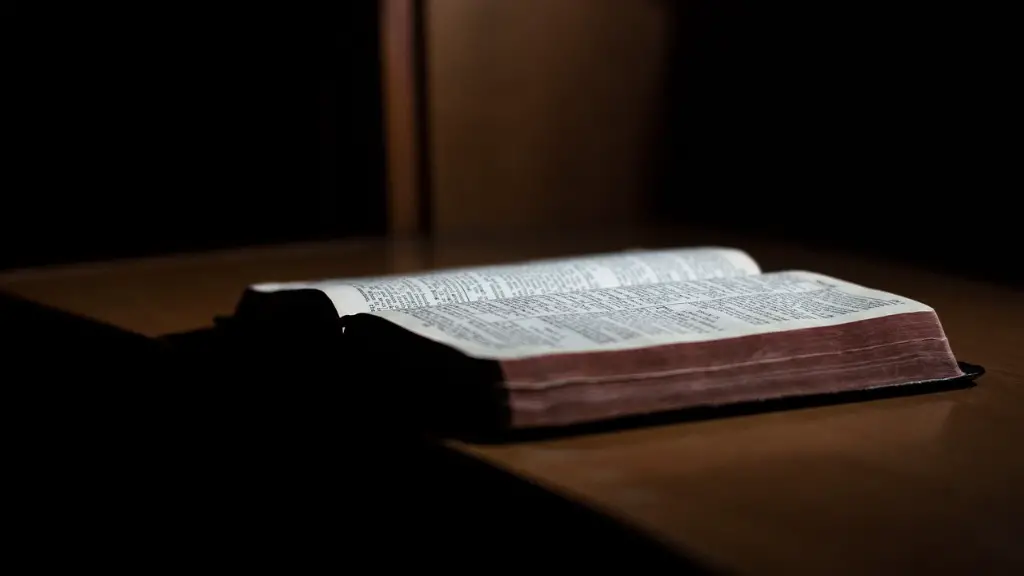Ruth And Her Role in the Bible
Ruth is an intriguing figure in the Bible. She is one of five women found in the genealogies of Jesus, and making her entrance late in procession after even Solomon. She is revered as an outsider, an immigrant, an outsider of faith—ubiquitously holy in all of the senses. Even so, what does the Bible say about Ruth? By delving into her story, the book of Ruth, her brief narratives paired with the lineage of Jesus, and taking into account the nuances of the text, one can better ascertain the true significance of Ruth in the Bible.
The Tale of Ruth
The book of Ruth is a four-chapter story of resilient faith, courage, and steadfast love. During a severe famine in Judah, Elimelech, Naomi, and their two sons, Mahlon and Chilion, flee to Moab. Tragedy abounds when Elimelech and his sons soon die leaving Naomi and her two daughters-in-law, Ruth and Orphah, bereft.
Moreover, Naomi decides to return to her homeland of Judah. Faced with a decision, Orpah turns back to her homeland and her gods. Ruth, however, taking the pledge of loyalty as put forward by Naomi, states a now-famous 2-verse-long speech:
“Do not urge me to leave you or turn back from following you; for where you go, I will go, and where you lodge, I will lodge. Your people shall be my people, and your God, my God.”
Ruth then travels to Bethlehem with Naomi. While in Bethlehem, Ruth comes upon an opportunity to glean barley for a man called Boaz. The chance meeting causes a chain of events that eventually makes her Boaz’s wife.
The Lineage of Jesus
Ruth makes a brief appearance in the lineage of Jesus in the Gospel of Matthew. The most distinguishing feature of Ruth is her outsider status—the fact that her family was not of Jewish descent. She is a Moabite. This concept of an outsider becoming a true believer shows a unique perspective on faith and conversion that is not found in other sections of the Bible.
Moreover, the line of Jesus is often called the ‘Olive tree’ due to Ruth’s Moabite background being used as the intertwining branches of the tree. As the book of Romans states, Jesus was a descendant of Judah, an Israelite by himself, but He was also part Moabite through His maternal line.
The Nuances of the Text
A closer look at the tale of Ruth reveals some interesting nuances and subtexts that show her true place in the Bible. Ruth is automatically respected as a foreign widow who, coming from a very different background, has found in Naomi and her God something that she treasures far more than family loyalty and tradition.
Furthermore, the love between Ruth and Boaz and the respectful display of his offerings can be seen as symbolism of the Last Supper, where Jesus offers His own body—the bread—unto the Apostles. This gesture of servant-love is often seen as a connection to the sacrifice (of Jesus) and Ruth’s story being connected to the near-sacrifice of herself, her true love being greater than family and all to which she was loyal in the past.
The Significance of Ruth
From a faith perspective, the book of Ruth is one that speaks to a powerful reason why we have authentic faith—a proof that genuine love and commitment to a higher power is a true gift that is never lost.
Moreover, the book of Ruth is rich in metaphorical occasions that flip archetypes and norms. For example, the outsider-faith in Jesus and the eventual linking of all nations to God overturns the exclusive Israelite notion of the Messiah’s ancestor. Ruth and the book she represents brings a new outlook to faith, a less exclusive one that crosses all boundaries and races, with one common goal—to become pious and to approach the God with love and respect.
Ruth and Her Act of Sacrifice
Ruth is deeply symbolic, biblically and culturally, of the ultimate act of sacrifice. The ultimate act of sacrifice being, of course, that of Jesus. The risk that Ruth took to leave her family, her tradition, and her homeland all for the chance to become one with Naomi and live for the Lord is highly symbolic of Jesus’ ultimate act of surrender in dying for humanity.
Furthermore, Ruth’s continuous loyalty to Naomi and her willingness to accept her fate and wed Boaz reminds people of Jesus’ willingness to be sacrificial and humble. The text has various backdrops pointing to the nuances of submission and servanthood. That puts Ruth in the unique and profound position of a fragile reminder of Jesus’s own footsteps and mission.
The Book of Ruth and Its Messianic Prophecy
The book of Ruth is arguably the most poignant Messianic prophecy of the Bible. Ruth’s story is unique in the Bible, in that it is the only book of the Old Testament that isn’t traditionally part of the Former Prophets or the Writings.
Simply put, there is no explicit Messianic prophecy about the coming of Jesus in the book of Ruth. What we find in Ruth is a broader spiritual representation of the Lord’s redemption plan, with an emphasis on favor, favoritism, grace and restoration. These themes of redemption, faith, and loyalty in adversity form the basis of the entire Messianic plan of God.
The Elimelech Factor in the Bible
The theme of Elimelech—Naomi’s husband—is an interesting one when it comes to looking at the place of Ruth in the Bible. Even though Elimelech is not featured heavily in the book of Ruth, he plays a significant role in the story’s overall theme.
The absence of Elimelech sets the stage for the meandering journey of Ruth and Naomi with God as their sole provider. Moreover, the mention of Elimelech in passing in the book of Ruth has religious implications. Several commentators point out that Elimelech’s sacrifice—taking his family to a foreign land, then passing away—set forth a chain of events that would eventually lead to Jesus’ lineage.
Ruth’s Place in Christianity
The presence of Ruth in the genealogy of Jesus not only serves to remind us of her place in his family but also of her place in Christianity. Ruth, who from the outset appears to have been a foreigner and outsider to the religion, embodies faith and loyalty to a new belief system.
The true significance of Ruth in the Bible is summed up in its short storyline: of the meandering path of faith, the acceptance of a new creed, and the acquisition of a place in the house of the Lord. Her sterling example of self-sacrifice and her faith in God above all else stands as an important reminder of the power of God to save, heal, and redeem us all.
Ruth as a Symbol of Second Chances
The entwining of Ruth’s outsider status and her gradual integration with the faith of Judah serves to remind us of the power of redemption and the idea of second chances. Her story shows us that there is no such thing as a mistake that cannot be forgiven, if one is willing to make a sincere change.
The act of boldly embracing the tenets of a new faith, trusting in its ability to bring light and hope, and being willing to cast aside longheld familial and societal expectations is an act of fundamental equality—a reminder that, in the eyes of God, all are equal and capable of rising to remarkable heights.
The Significance of Ruth in the Bible Today
In conclusion, the presence of Ruth in the Bible serves to remind us of what matters the most—our faith and loyalty to God. Ruth’s story is a testament to the power of the Lord in our lives, the fact that He remains with us through all hardships and shadows, never leaving His faithful—even foreigners—unforgotten.
She stands as a reminder of how far-reaching and all-encompassing the love of God can be, embracing anyone and everyone who’s willing to accept it. In that sense, her story should be a source of comfort and strength to us all, encouraging us to never give up on our dreams and strive for the lives we’ve been called to live, staying true to our convictions and never wavering in our faith.


